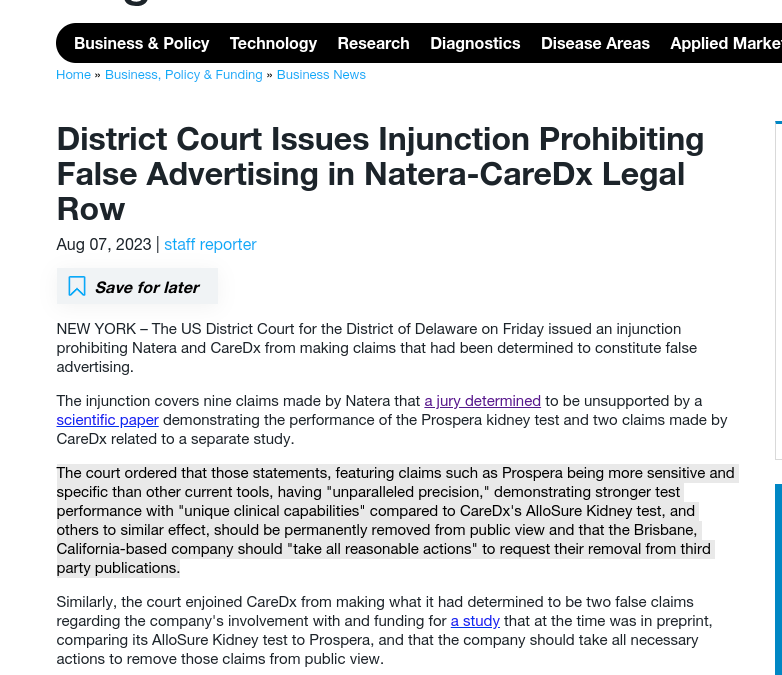Can labs that aren’t regulated by the FDA create whatever “claims” they wish pertaining to the performance of the test? YES!
Does this false advertising ultimately hurt patients? YES!
A recent article published by GenomeWeb stated that Natera and CareDx, Inc. are still working out legal issues based on falseadvertising claims on performance that includes sensitivity and specificity of testing. According to the New York State Department of Health – sensitivity refers to a test’s ability to designate an individual with disease as positive. A highly sensitive test means that there are few false negative results, and thus fewer cases of disease are missed. The specificity of a test is its ability to designate an individual who does not have a disease as negative.
https://lnkd.in/ePyU6EwR.
Does knowing whether the lab that your doctor orders from, your insurance company covers as ‘in network’, or your entire care is based on matter?
As a patient, caregiver and advocate for patients, the answer is YES! I want to ensure that the test result received from a lab, to a doctor, for a patient is accurate.
Genetic and genomic testing labs can currently claim what they choose to claim….The case below shows the legal system holding the lab accountable for what they used for marketing purposes.
“The court ordered that those statements, featuring claims such as Prospera being more sensitive and specific than other current tools, having “unparalleled precision,” demonstrating stronger test performance with “unique clinical capabilities” compared to CareDx’s AlloSure Kidney test, and others to similar effect, should be permanently removed from public view and that the Brisbane, California-based company should “take all reasonable actions” to request their removal from third party publications.”
You can read the entire article here: https://lnkd.in/e58hxdtM
This is typical verbiage for Laboratory Developed Tests (LDTs):
Prospera was developed by Natera, Inc., a laboratory certified under the CLIA Clinical Laboratory Improvement Amendments. This test has not been cleared or approved by the US Food and Drug Administration (FDA). Although FDA does not currently clear or approve laboratory-developed tests in the US, certification of the laboratory is required under CLIA to ensure the quality and validity of the tests. Multiple publications prove the CLIA standards aren’t enough.
Contact us at CGI to learn more. truth-in-genomics@genomicinterpretation.org or ph +1 (801) 810-4097.

Recent Comments